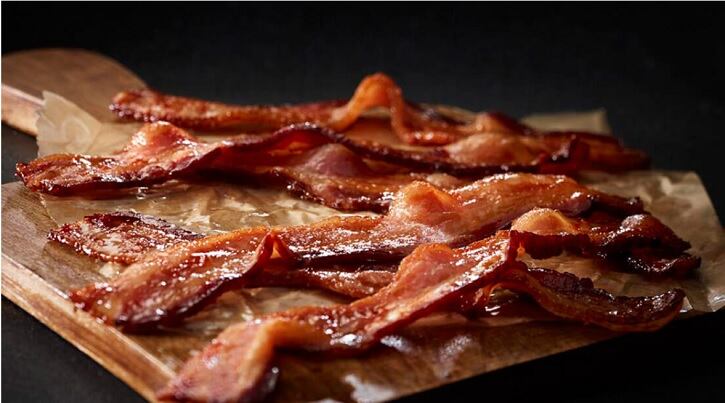The company reported Aug. 22 that net sales fell 3% to $2.3 billion in the third quarter compared to the same time last year as did volume, which dropped 4% to 1.1 billion pounds, representing a 1% decrease in organic volume.
Despite these decreases, which lead to a 5% reduction in the company’s earnings per share to 37 cents, the company affirmed its 2019 fiscal earnings guidance of $1.71 to $1.85 per share.
“We delivered earnings in line with our expectations this quarter as our experienced management team reacted quickly and appropriately to rapidly changing market conditions,” CEO Jim Snee said in a statement announcing the results.
He told analysts during a call last Thursday that Hormel was able to make the most of its situation by continuing to offer “value-added products, disciplined pricing and a clear focus on innovation.”
He added: “While we have seen how rapid changes in input costs can create noise in its quarterly results, the clarity, focus and alignment refrigerated foods demonstrates will continue to deliver sustainable growth.”
Disciplined pricing
Part of Hormel’s ability to maintain its annual guidance is because it is able to react quickly to changing market demands, including through its pricing, Snee said.
For example, he said, the brand’s value-added products started the quarter priced higher than the competition because the company raised its prices in reaction to sharp input cost increases. However, when those higher input costs did not materialize as forecasted, Snee said, the company realigned our pricing to more closely match the commodity market.
Product innovation
Hormel also remains optimistic because of positive responses to product innovation, Snee said.
For example, the recent launch of Skippy PB&J Minis “has been met with great retailer and consumer acceptance” and a frozen product that is “versatile, portable, and perfect for today’s busy families,” Snee said, noting the product has national distribution and “trial and repeat rates continue to improve.”
He also noted the initial success of Applegate’s new Blend Burger – especially in food service at healthcare providers and colleges and universities.
“The Applegate Blend Burger is filling a need in the college and university segment as students look for more ways to enjoy natural and organic alternative protein products,” Snee said.
In addition, he lauded the company’s ability to react to shifting consumer preferences for more grab-and-go items, which Hormel is meeting with products such as its Hormel Gatherings party trays and its line of Columbus charcuterie.
Strategic promotional activity
As for managing promotional pricing, Snee said the company’s approach is “unique and different retailer by retailer,” but that it is working to ensure that products are priced appropriately at shelf so as to keep shoppers engaged.
“We work closely, of course, to make sure that the shelf price is reflective of where it needs to be, but again, depending on the situation, we’re willing to invest trade dollars, but it is a customer by customer decision,” he said.
A choreographed approach to managing sales
Despite these strategic moves, the company’s sales dropped for various reasons – some of which were out of the company’s control and others were directly related to company maneuverings.
For example, the company continues to struggle with lower prices for Skippy peanut butter due to competitive pricing pressures as well as “significantly higher avocado costs” that negatively impacted its guacamole business.
At the same time, sales also fell due to a strategic decision by Hormel to sell its Muscle Milk protein shake business for $465 million to PepsiCo Inc. This move not only reduced sales, but also costs associated with the brand, such as in advertising, the company reported.
“Taking all factors into account … I have confidence in our teams’ ability to adjust to the changing market conditions and deliver our fully year outlook,” Snee concluded.

